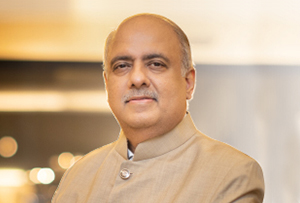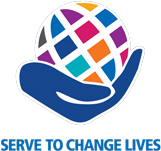
Greetings, dear changemakers of Rotary,
Public health is on everyone’s mind due to the global pandemic that still threatens the safety of ourselves and our loved ones. In a sense, Covid-19 has made all of us much more aware of the roles and responsibilities of medical professionals than we were before we had to wear masks and maintain social distance. In addition, while moving through this pandemic, we have also learned about the role we can play in keeping others safe.
December is Disease Prevention and Treatment Month in Rotary. The pandemic unfortunately has schooled most people on the toll that disease takes on our communities. But fighting disease is something that Rotarians around the world have been doing for decades. In fact, it is one of Rotary’s seven areas of focus.
As Rotarians, we believe that good health and well-being is a human right — even though 400 million people across the globe do not have access to essential health services. The work we do in establishing clinics, eye hospitals and blood banks, as well as in building infrastructure for medical facilities in underserved communities, all returns to a central belief that access, prevention and education are the keys to stopping deadly outbreaks that harm the most vulnerable.
My exposure to health work began with my club, RC Calcutta Mahanagar. There, among other things, I helped pioneer a programme called Saving Little Hearts that over the years has provided more than 2,500 free heart surgeries for children from India, Pakistan, Bangladesh, Nepal and Africa. Before the programme went international, it started locally with the goal of performing just six surgeries within our community. Today, our goal is to complete another 20,000 surgeries over the next five years.
The world relies on Rotary to tackle challenges like these and to set an example for others. Over the past decade, medical professionals and government workers have provided free health services to 2.5 million people in 10 countries during Family Health Days, which are organised by Rotarians around the world. Similar health camps in India also provide thousands of surgeries to those in need. Medical missions from India to Africa each year are an excellent example of hands-on service in disease prevention and treatment. Rotary members can also get involved at a local level; clubs in the United States and Mexico, for example, fund a free health clinic in Guerrero, a small town in Mexico.
And of course, our effort to eradicate polio is by far the best story in civil society healthcare.
This month, think about how your club can focus on preventing and fighting disease. This is the time to take a bigger, better, bolder approach through both club and district projects that can impact more people. Re-evaluate where you are with your goals. Create strategies that can sustain change over years, not months.
Everyone deserves a long, healthy life. When you Serve to Change Lives, your actions today can help extend the lives of others.






